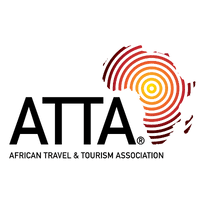Included in the cost:
Not included in the cost:

To enter Kenya, individuals holding U.S. and Canadian citizenship must possess a valid passport, which should remain valid for at least six months beyond the date of reentry.
It is advisable to ensure that your passport has a minimum of two blank pages available for entry stamps.
For U.S. and Canadian passport holders, obtaining a visa in advance is a prerequisite for entering Kenya. You have the option to apply for an e-visa online through the Ministry of Foreign Affairs or request a paper visa by visiting your local embassy. (Please note that the consulates in the U.S. and Canada do not have authority over the e-visa process.) Alternatively, you can choose to procure your visa through a visa service provider, such as our partner VisaCentral. Remember to carry your visa receipt with you when arriving in Kenya.
For travelers booked on round-trip flights through Go Ahead Tours, your flights will be scheduled to arrive at and depart from Nairobi. Upon your arrival at the airport, a representative from Go Ahead Tours will be there to greet you and facilitate your transfer to your hotel. While waiting for your transfer, kindly remain in the arrival lounge, as the representative may be assisting another fellow traveler with their transfer at the same time.
Airport transfers to and from your destination are included in the package for travelers who have arranged their flights through Go Ahead Tours. Travelers who have independently booked their flights have the option to request airport transfers from Go Ahead Tours for an additional fee.
During your game drives, you will be traveling in a specially equipped 4×4 safari land cruiser. These vehicles are open, providing unobstructed panoramic views of the surroundings. Rest assured, all travelers are guaranteed window seats for these drives. Please note that the transfers between parks can be quite lengthy and traverse rough terrain. To enhance your comfort during these journeys, we recommend bringing a small pillow for added cushioning.
Airlines have varying regulations regarding baggage weight limits, and some may impose extra fees for checked baggage. Please be aware that any such additional charges are your responsibility.
We recommend that you contact your airline to ascertain the specific size and weight restrictions for your flight. However, please note that due to space constraints on safari vehicles, our travelers are limited to one checked bag per person.
For your convenience, it’s advisable to pack one overnight bag, such as a backpack or a compact collapsible duffle bag. You are also allowed to bring a small carry-on bag, which can serve as your overnight bag if needed.
Ensure that your luggage is clearly labeled, and it’s essential to keep valuables, medications, and important documents in your carry-on bag. Please be aware that luggage restrictions during safaris are rigorously enforced. Therefore, it is crucial that your baggage complies with the following requirements:
For your comfort, it’s advisable to pack loose-fitting, layered clothing that can adapt to varying temperatures. Quick-drying fabrics are ideal for hot outdoor days, while having a warmer layer on hand may be necessary for cooler evenings and early mornings.
During game drives, opt for muted colors in your clothing choices. Bright attire can potentially disturb wildlife, whereas blue or black clothing tends to attract tsetse flies.
For daytime activities, comfortable closed-toe shoes like sneakers or lightweight hiking boots are recommended.
Don’t forget to include a swimsuit in your packing list, as many hotels offer access to pools for your relaxation.
Sun protection is crucial, so be sure to bring sunscreen, sunglasses, and a wide-brimmed hat to shield your face and neck from the sun.
Depending on the timing of your trip, you might encounter occasional rain showers. Therefore, it’s advisable to pack lightweight rain gear.
To enhance your experience, consider bringing along mosquito repellent, binoculars, and a flashlight.
In situations where restroom facilities may be limited, having a small bottle of hand sanitizer can be quite handy.
It’s important to note that the Kenyan government has implemented a strict ban on plastic bags. Using, selling, or carrying plastic bags anywhere in the country is illegal and can result in significant fines or imprisonment. When shopping during your tour, please bring reusable cloth bags and refrain from packing any plastic bags, including small resealable ones.
It’s recommended that you consult your doctor or healthcare provider at least 60 days before your departure to stay informed about the latest updates and entry requirements. You can also visit the Center for Disease Control and Prevention website at cdc.gov for valuable information.
Certain local authorities may request proof of a yellow fever vaccination, commonly referred to as a yellow card, or a medical exemption statement for travelers arriving from regions with yellow fever virus transmission. Please note that this requirement does not apply to travelers from the U.S. or Canada. For detailed insights, you can visit cdc.gov/yellowfever.
For travelers on the tour extension to Tanzania, it is mandatory to provide proof of a yellow fever vaccination (yellow card) or a medical exemption statement.
To ensure your well-being, stick to bottled water and avoid consuming tap water, including during teeth brushing.
When it comes to food, exercise caution with fresh fruits and vegetables unless they have been cooked, washed in clean water, and peeled.
For added peace of mind, consider packing a compact first aid kit containing antacids, anti-diarrhea medication, motion sickness remedies, and any prescribed medications in your carry-on luggage.
If you rely on daily medication, make certain you have an ample supply to cover each day of the tour, accounting for potential delays.
In case you have specific dietary restrictions or food allergies, please inform Go Ahead Tours no less than 30 days before your departure. You can do this by accessing your account and updating your traveler information. For updates closer to your departure date, kindly reach out to our Customer Experience Team.
During your tour, you will be using the Kenyan shilling as your primary currency, and the Tanzanian shilling will be utilized on the tour extension.
To ensure you have the appropriate currency, you may consider purchasing Kenyan shillings in advance from your local bank or a foreign currency exchange provider, such as Travelex. It’s important to note that there is no limit on bringing currency into Kenya. However, travelers are advised not to carry more than $100,000 worth of Kenyan shillings out of the country. Similarly, in Tanzania on the tour extension, the export of more than $5,000 in Tanzanian shillings is not permitted.
For convenience, we recommend carrying a minimal amount of local cash and a small sum in U.S. dollars, specifically bills printed in 2004 or later.
While ATMs are most prevalent in Nairobi, we suggest using them to withdraw cash in small denominations to have available during your safari.
While major North American credit cards are generally accepted, it can be challenging to use them in remote areas. Visa is typically the most widely accepted.
For international transactions, banks and businesses often prefer debit and credit cards equipped with the EMV chip system. If you don’t already have a card with this feature, we strongly recommend requesting one from your bank before your tour.
To prevent any inconvenience during your travels, please notify your bank and credit card company about your upcoming trip. This will help avoid any confusion, ensuring that your international purchases are not mistaken for fraudulent charges.
Let our experts guide you towards a safari experience that you’ll cherish for a lifetime.



